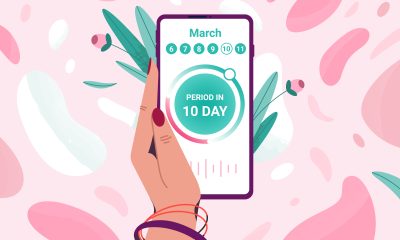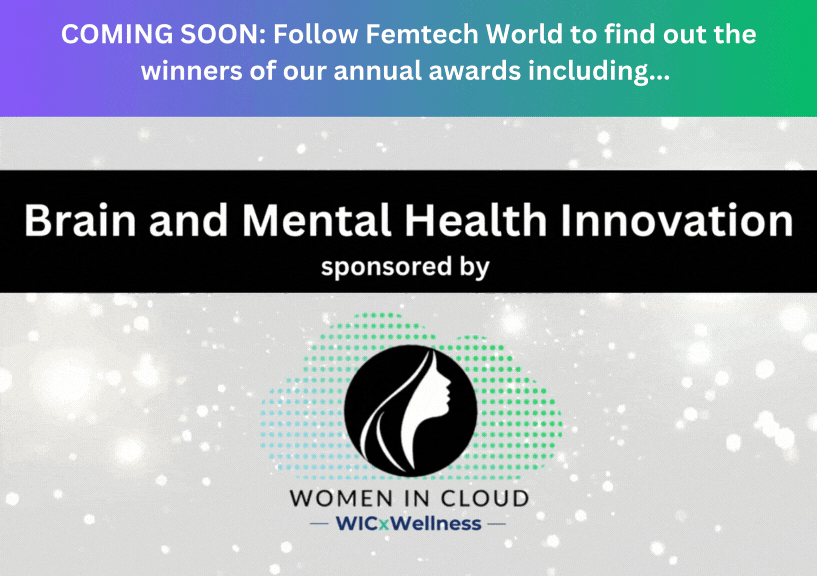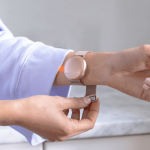Mental health
Tech-assisted peer therapy effective for perinatal depression in lower income countries

A recent study has demonstrated the effectiveness of a novel, technology-assisted intervention for perinatal depression.
Perinatal mental health is one of the most pressing and under-addressed global health challenges, particularly in low- and middle-income countries (LMICs).
One in four women in LMICs suffers from perinatal depression, a condition linked to disability, maternal suicide, and long-term developmental harm to children.
Despite decades of concern voiced by child development experts and human rights advocates, access to effective treatment remains poor, with a treatment gap estimated between 75 per cent and 90 per cent in these settings.
University researchers developed a new intervention that combines peer-delivered cognitive behavioural therapy (CBT) with a co-produced digital app.
The intervention leverages the lived experience of local mothers from the community with no formal healthcare training, to deliver support.
This complements a culturally adapted, animated digital platform.
The Technology-assisted Peer-delivered Thinking Healthy Programme (THP-TAP) app automates key CBT elements using avatars and storytelling to ensure consistent quality and reliability, while peers focus on human interaction, delivering empathy, encouragement, and vital social support.
The results show this novel intervention to be as effective as standard cognitive behavioural therapy in treating perinatal depression, with women receiving the peer-delivered intervention experiencing significantly greater reductions in depressive symptoms at three months postnatal.
Atif Rahman is Professor of Child Psychiatry and Global Mental Health at the University of Liverpool.
Rahman said: “Our research shows that combining human empathy with technological innovation can deliver effective mental health care even in resource-constrained settings.
“This offers a fresh perspective on how we approach maternal mental health in LMICs.”
The model offers several advantages for scale-up. By using peer mothers as co-therapists, the intervention taps into a sustainable human resource.
The App ensures that essential therapeutic content is delivered accurately without constant specialist supervision.
Moreover, the intervention was found to be cost-effective and culturally acceptable, with high uptake and no evidence that stigma deterred participation.
The study is believed to be the first to demonstrate the robust effectiveness of a lived-experience peer and digital App working in tandem as co-therapists for perinatal depression in a low-resource setting.
Researchers believe the model holds promise for closing the quality gap that has long hindered task-sharing approaches in global mental health.
As LMICs continue to grapple with the severe shortage of mental health specialists, this innovation could offer a scalable, affordable, and community-driven solution to one of the most urgent threats to maternal and child health.
News
8 ways to improve mental health access across your menstrual cycle

Have you noticed how some weeks you feel clear-headed and energetic, while others leave you foggy, anxious, or tearful? There’s a reason for that.
Your mental health during PMS and across your entire menstrual cycle isn’t random. It’s deeply connected to how your brain responds to shifting hormone levels.
Estrogen and progesterone don’t just affect your reproductive system; they also influence neurotransmitter activity, brain connectivity, and even the volume of certain brain regions linked to memory, mood, and emotional regulation.
Research shows that grey matter volume in areas controlling emotion changes measurably across the menstrual cycle in relation to hormone fluctuations.
This isn’t about being hormonal. It’s about understanding that your brain operates differently at different times of the month, and that knowledge gives you power.
The menstrual cycle experience is ultimately brain-based. The brain is the control centre for how your body reacts to hormonal changes.
When you understand what’s happening in your brain during each phase, you can work with your cycle. That’s where real cycle mood regulation begins.
Why Your Mental Health Shifts Across Your Cycle
Your menstrual cycle follows a predictable hormonal pattern, and these hormones act as chemical messengers that profoundly affect brain function.
Estrogen rises during the follicular phase and tends to boost serotonin and dopamine, neurotransmitters that support mood stability and motivation.
After ovulation, progesterone takes centre stage during the luteal phase.
As both estrogen and progesterone drop sharply before menstruation, some women experience significant mood dips, brain fog, or emotional sensitivity.
These shifts cause noticeable mental health issues during PMS.
The key takeaway? Hormonal mood swings aren’t a character flaw. They’re neurological responses to predictable biochemical changes, and that means they can be managed with the right brain-first strategies.
8 Ways to Support Mental Health Across Your Menstrual Cycle
1. Track Your Patterns to Predict Your Needs
Understanding your unique cycle mood regulation patterns is the foundation of effective self-care. When you track symptoms across multiple cycles, patterns emerge that help you anticipate challenging phases and plan accordingly.
Record daily mood ratings, energy levels, anxiety or irritability, brain fog, and physical symptoms. After 2-3 cycles, you’ll likely spot trends. Maybe your anxiety peaks 5 days before your period, or brain fog hits mid-luteal phase.
The Samphire app acts as an active diary for your cycle, helping you spot when symptoms are likely, plan for focus days and rest days, and build habits around your natural rhythms.
2. Adjust Your Exercise Routine to Match Your Energy
Movement is one of the most powerful tools for mental health during PMS and beyond, but the type and intensity should shift with your cycle phases.
Follicular Phase (Days 1-14): As estrogen rises, try high-intensity interval training, strength training with heavier weights, or running.
Luteal Phase (Days 15-28): As progesterone dominates and energy dips, consider moderate cardio like walking or swimming, yoga, or lighter strength training.
Menstrual Phase (Days 1-5): Gentle movement like restorative yoga or walking can ease cramps and support mood without depleting energy.
Exercise stimulates endorphins and brain-derived neurotrophic factor (BDNF), both of which support neuroplasticity, or he brain’s ability to adapt. Research consistently shows that regular physical activity reduces symptoms of anxiety and depression.
3. Eat to Nourish Your Brain Chemistry
Your brain needs specific nutrients to manufacture neurotransmitters and regulate mood effectively. Hormonal mood swings can be amplified by nutritional deficiencies or blood sugar instability.
|
Nutrient |
Brain Benefit |
Food Sources |
|
Omega-3 fatty acids |
Reduces inflammation; supports serotonin |
Salmon, walnuts, flaxseeds |
|
Magnesium |
Calms the nervous system; reduces PMS |
Dark leafy greens, pumpkin seeds, dark chocolate |
|
B vitamins (B6) |
Essential for neurotransmitter production |
Eggs, legumes, bananas |
|
Complex carbs |
Stabilises blood sugar; supports serotonin |
Oats, quinoa, sweet potatoes |
During the luteal phase, when serotonin naturally dips, eating complex carbohydrates can help maintain levels and reduce irritability. Avoid excessive caffeine and refined sugar, which can worsen anxiety and create energy crashes.
4. Prioritise Sleep Hygiene Throughout Your Cycle
Sleep disturbances are common across the menstrual cycle, particularly during the luteal phase. Poor sleep directly impacts mood regulation, making existing hormonal mood swings worse.
Sleep strategies for better cycle mood regulation:
- Maintain consistent sleep and wake times
- Cool your bedroom to 65-68°F, especially during the luteal phase
- Limit screens 1-2 hours before bed
- Create a wind-down routine with gentle stretching or meditation
- Avoid caffeine after 2 PM
Research shows that sleep deprivation reduces activity in the prefrontal cortex while increasing amygdala reactivity, making you more emotionally reactive. Quality sleep gives your brain the resources it needs for effective cycle mental health care.
5. Practice Mindfulness and Stress Reduction Techniques
Chronic stress exacerbates mental health during PMS by dysregulating the hypothalamic-pituitary-adrenal axis, the same system that controls your menstrual cycle.
Mindfulness meditation increases grey matter in brain regions involved in emotional regulation. Just 10-20 minutes daily can reduce anxiety and improve your capacity to manage hormonal mood swings.
Evidence-based techniques to try:
- Breath work: Box breathing (inhale for 4, hold for 4, exhale for 4, hold for 4) activates the parasympathetic nervous system
- Body scan meditation: Systematically relaxing each part of your body reduces physical tension
- Journaling: Writing about emotions helps process them and identify patterns
- Progressive muscle relaxation: Tensing and releasing muscle groups calms the nervous system
6. Build Strong Social Connections
Social support isn’t just emotionally comforting. It’s neurologically protective. Strong relationships activate brain regions involved in reward processing and stress regulation, helping safeguard mental health during PMS.
During phases when you feel more withdrawn, maintain connection in manageable ways: texting a friend, attending a yoga class, or scheduling video calls during high-energy weeks.
Let trusted friends or partners know that your mood and social energy fluctuate with your cycle. Simply having someone understand why you need more space in certain weeks reduces guilt and anxiety.
7. Consider Cognitive Behavioural Strategies
Cognitive Behavioural Therapy (CBT) techniques are particularly effective for cycle mental health care because they help you identify and challenge thought patterns that worsen mood symptoms.
Simple CBT strategies for cycle mood regulation:
- Identify the thought: When you notice mood shifting, pause and ask, “What am I thinking right now?”
- Challenge the thought: Is there evidence for this thought? Am I jumping to conclusions?
- Replace with a balanced thought: “I feel irritable right now, and that’s normal for this phase of my cycle. This feeling will pass.”
This practice builds the prefrontal cortex’s capacity to regulate emotional responses, essentially training your brain for better emotional control.
8. Try Brain-Based Neuromodulation
Traditional approaches to cycle mood regulation typically focus on hormonal interventions or lifestyle changes alone. Samphire takes a different approach: targeting the brain directly using gentle neurostimulation.
Nettle™ uses transcranial direct current stimulation (tDCS), a non-invasive technology that delivers gentle electrical currents to specific brain regions involved in mood regulation and pain processing.
How brain-based solutions support mental health during PMS:
- Hormone-free and drug-free: Nettle™ provides relief without altering your natural cycle
- Clinically validated: Studies show that tDCS can reduce symptoms of anxiety, depression, and pain
- Convenient: Just 20 minutes a day, 5 days per cycle, from home
- Works with neuroplasticity: Repeated use helps retrain neural pathways for lasting improvements
When to Seek Professional Support
While these strategies can significantly improve mental health during PMS for many women, some symptoms warrant professional evaluation. Seek help if you experience severe mood symptoms interfering with daily life, thoughts of self-harm, or symptoms that don’t improve after 3 months.
Your Brain, Your Cycle, Your Control
Hormonal mood swings and mental health during PMS challenges aren’t weaknesses. They’re neurological responses to predictable biochemical changes.
When you understand what’s happening in your brain at each phase, you gain the power to support yourself effectively.
At Samphire, the focus is on the neuroscience of women’s health, because to truly understand and improve hormonal wellbeing, you need to start where hormones start: in the brain.
Samphire combines cutting-edge science with time-tested practices to deliver relief for women throughout the cycle.
Ready to experience brain-first cycle mood regulation?
Try Samphire Neuro Nettle™ risk-free with their 90-day trial and support your brain across every phase.
Opinion
Opinion: Not ‘just stress’ – How hormonal changes affect women’s brain function

By Dr Louise Newson BSc(Hons) MBChB(Hons) MRCGP FRCGP DHealth
Over years of studying the health of women there’s one key thing that I’ve come to realise; clinicians have often been missing a crucial piece of the puzzle in understanding women’s mental health and brain function.
It all comes down to three hormones that deserve far more attention for their powerful influence on the brain — progesterone, estradiol, and testosterone.
As an example, I consulted with a 46-year-old woman last week in my clinic. She’s clever, accomplished, always been on top of things.
But recently she has been forgetting words mid-sentence, she can’t remember where she parked her car and finds herself having to read the same page three times and still nothing sticks.
Terrified that she has early-onset dementia, she visited her GP who told her it’s “just stress” or “normal ageing.”
But here’s the thing – it’s neither. It’s her brain responding to a dramatic hormonal shift, and we need to start talking about it.
Women’s mental health, and especially brain health, is deeply influenced by our hormones – progesterone, estradiol and testosterone – all three having fundamental roles in how our brains function.
However this connection is often overlooked in medicine and public conversations.
When levels of these hormones fluctuate and reduce (as they do during perimenopause and menopause) then this can have negative effects on our brain metabolism and function leading to symptoms such as memory problems, brain fog, poor sleep, low mood, anxiety, irritability and fatigue.
Menopausal women have an increased risk of developing dementia due to these hormone levels being low.
These vital hormones work to improve glucose metabolism, which provides the fuel our neurones (nerve cells) need to function and connect with each other.
They also work to reduce inflammation and improve the function of our mitochondria (the powerhouse of our cells) which all work to keep our brains healthy and working well.
Progesterone, estradiol and testosterone also increase neural growth, strengthen synaptic connections between nerves, and regulate levels of neurotransmitters such as serotonin for mood, acetylcholine for memory, melatonin for sleep and dopamine for motivation.
The presence of these hormones is linked to lower rates of memory loss and can reduce risk of Alzheimer’s disease, which affects women at nearly double the rate of men.
Importantly, “brain fog” and forgetfulness commonly reported during perimenopause and menopause are real and measurable phenomena linked to hormonal fluctuations, not just “normal ageing” or stress.
Testosterone is commonly misconstrued as “just a male hormone,” but women’s brains require it for optimal functioning.
Produced by ovaries and adrenal glands, as well as in the brain, testosterone supports cognitive sharpness, energy, and drive.
Emerging evidence links lower levels of testosterone in women to poorer performance on memory, processing speed, and even greater Alzheimer’s risk, especially among those with certain genetic risk factors.
Like estradiol, testosterone boosts dopamine activity, which is crucial for focus, motivation, and pleasure.
Many women report that restoring testosterone improves concentration, energy, and overall mental clarity.
Women’s mental health is closely associated with these changing hormone levels.
Rates of depression, psychosis and anxiety in women are more common at times of hormonal flux such as puberty, the premenstrual phase, postpartum, perimenopause and menopause.
Therefore, clinicians should certainly be assessing for hormonal factors when cognitive and mental health concerns arise in women.
Women represent nearly two-thirds of all Alzheimer’s patients, and much of this is likely driven by the neurological impact of hormone loss.
Understanding estradiol, progesterone, and testosterone as master regulators of brain metabolism and cognition should then lead to better clinical treatment.
This must take the form of more personalised approaches by clinicians, prescribing the right dose and type of hormone treatment, which when combined with a healthy lifestyle offers the best prospects for safeguarding and improving brain and mental health for women.
One of the reasons I developed the Balance app is to empower women with evidence-based information so they can make the choices that are right for them about their hormonal health.
Using technology to both monitor symptoms and learn more is so important – the response from our users has been so positive and inspiring.
Femtech has the ability to reach a global audience and transcend national borders and cultures which is really exciting for me to witness through our Balance app.
It has also enabled us to provide communities with large scale pools of information and support which are not so readily available in other ways.
Also, Balance is used to support and empower women, privately, who are too scared to communicate in the physical world.
We’ve ignored women’s brain health for too long.
Clinicians have too often dismissed symptoms, failed to account for the profound impact of these hormones on brain function, and have frequently accepted cognitive decline as inevitable.
It’s time for that to change.
Because understanding the hormone-brain connection and replacing the missing hormones isn’t just about preventing disease, it’s about helping women thrive, with their minds sharp, their memories intact, and their full cognitive potential realised.
Image Credit: Andrew Crowley
News
Thriving through the ups and downs: A guide to women’s mental health

By Naomi Magnus, psychotherapist and founder at North London Therapy
Women’s health is closely linked to our biology, hormones, and the way our brains are wired, all of which shape our life experiences.
From the teen years right through to adulthood, hormonal ups and downs can affect mood, thinking, and emotional resilience in ways that are uniquely female.
Oestrogen and progesterone, for instance, don’t just influence fertility – they also play a key role in regulating neurotransmitters like serotonin and dopamine, which affect mood and anxiety.
In your twenties, when careers, relationships, and life choices are all coming together, it’s perfectly normal to feel anxious or low at times.
Anxiety disorders can often be connected to women’s hormonal and neurological differences. Recognising this can be really reassuring – anxiety can simply be a reflection of a complex, finely tuned system.
A woman’s menstrual cycle can have a big impact on energy, focus, and mood throughout their life, yet many women aren’t taught to track or anticipate these changes.
Later on, life events like pregnancy, postpartum shifts, and perimenopause bring even bigger hormonal swings, which can trigger mood changes, brain fog, or longer-term mental health challenges.
Schools have a crucial role to play in helping young women understand their bodies and mental health.
While the current UK national curriculum covers basic reproductive biology and puberty, it often misses the full picture of hormonal cycles, mental health, and the connection between the two.
Comprehensive education should include tracking menstrual cycles, recognising mood and energy patterns, understanding stress and anxiety triggers, and helping young girls to develop healthy coping strategies.
Teaching these skills early on equips girls with self-awareness, confidence, and the tools to manage their physical and emotional wellbeing throughout life.
Menopause is another life stage that brings significant hormonal changes, which can affect mental health.
As oestrogen and progesterone decline, many women notice mood swings, anxiety, low energy, and brain fog.

Naomi Magnus
Lifestyle adjustments can help – regular exercise, a balanced diet rich in omega-3s and whole foods, good sleep hygiene, and mindfulness or meditation practices can all support mood and cognitive function.
Therapy, such as cognitive behavioural therapy (CBT) or counselling, is effective for managing anxiety or low mood.
For some, hormone replacement therapy (HRT) may be recommended by a GP or specialist to stabilise hormones and alleviate both physical and psychological symptoms.
Women – at any age – can help themselves to feel better when hormone changes strike.
I am an advocate for mindfulness, good sleep, gentle exercise, socialising, and tracking your cycle alongside your mood.
Technology is stepping up – there are some amazing apps that make it easier to understand how your mental health and hormones interact.
It’s also worth acknowledging that times are tough globally – economic uncertainty, climate anxiety, and social pressures can all take their toll on our mental health.
While we can’t control everything around us, getting to know our own bodies and how we respond to stress can make a real difference.
By tuning into our cycles, moods, and energy levels, we can better anticipate challenging days and create a sense of calm amidst the chaos.
Understanding that women’s brains and mental health respond differently across life stages is really important.
Women should approach mental health proactively – because thriving isn’t just about surviving, it’s about knowing your mind and body inside out.
-

 News3 weeks ago
News3 weeks agoDozens of women report suffering painful burns after using Always sanitary towels
-

 Insight4 weeks ago
Insight4 weeks agoWomen’s health innovations recognised in TIME’s Best Inventions 2025
-

 Entrepreneur3 weeks ago
Entrepreneur3 weeks agoCutting through the noise in femtech – key takeaways from Women’s Health Week 2025
-

 News4 weeks ago
News4 weeks agoMenstrual cycle affects women’s reaction time, study finds
-

 News2 weeks ago
News2 weeks agoAI embryo selection tool wins European approval
-

 Menopause2 weeks ago
Menopause2 weeks agoTestosterone patch shows promise for menopausal women
-

 News3 weeks ago
News3 weeks agoScientists develop breakthrough approach to detecting endometriosis in menstrual blood
-

 Insight2 weeks ago
Insight2 weeks agoFrom SEO to GEO: How women’s health brands can get found in the age of AI






















